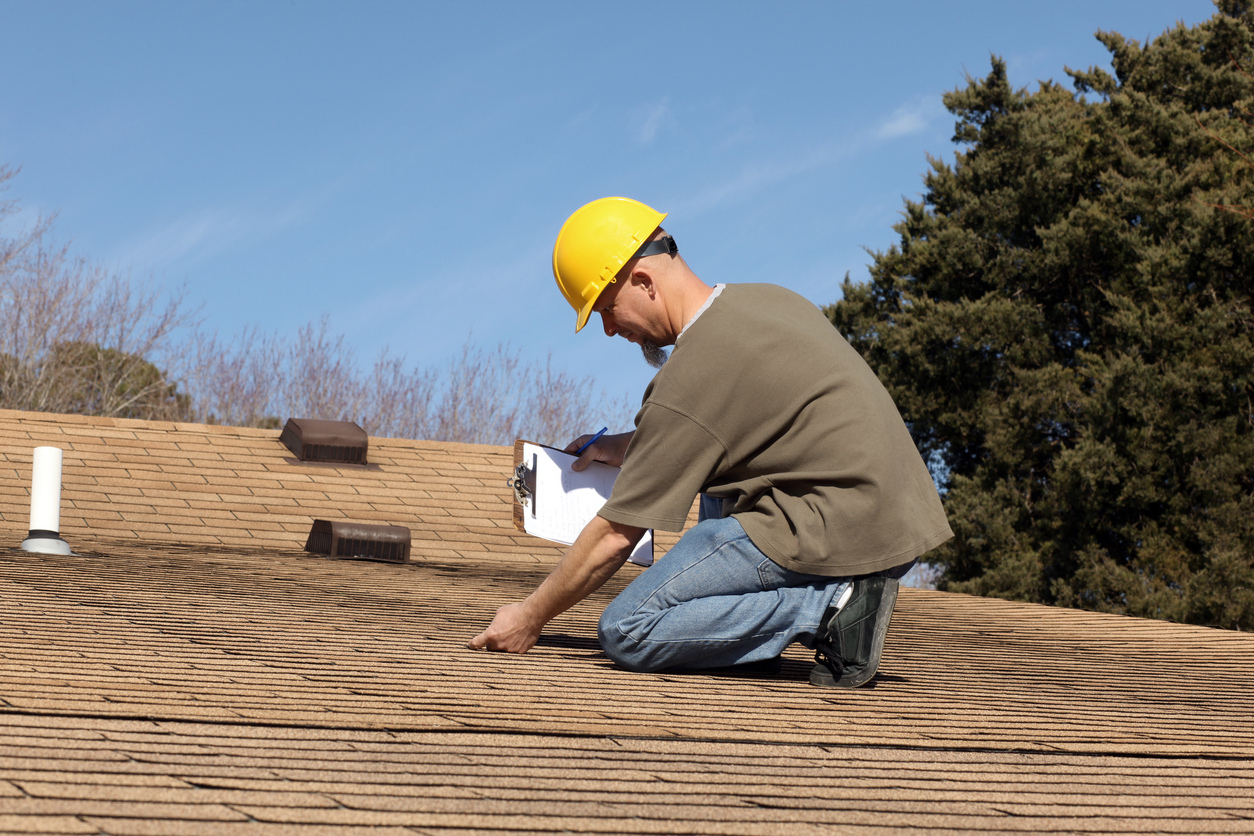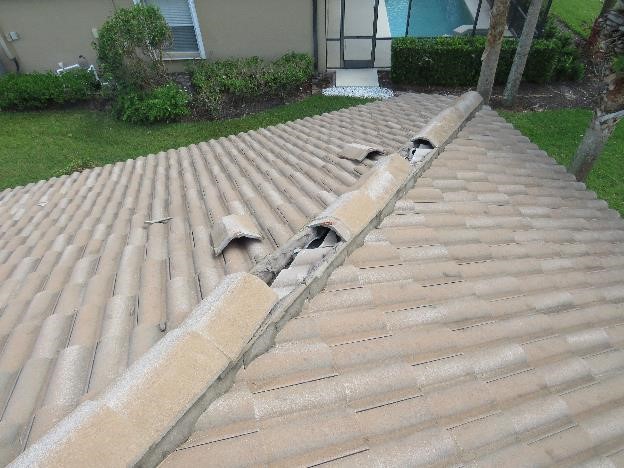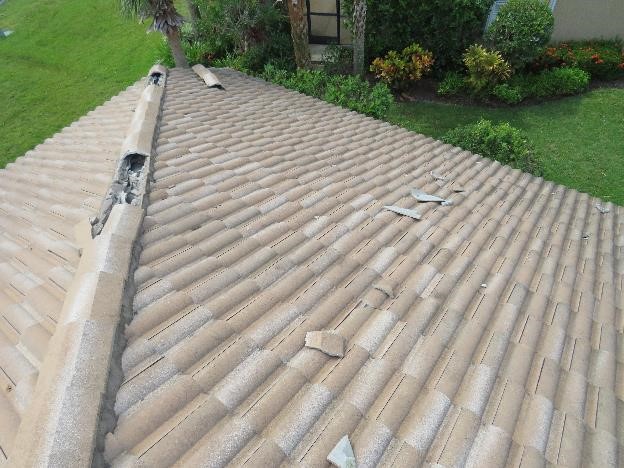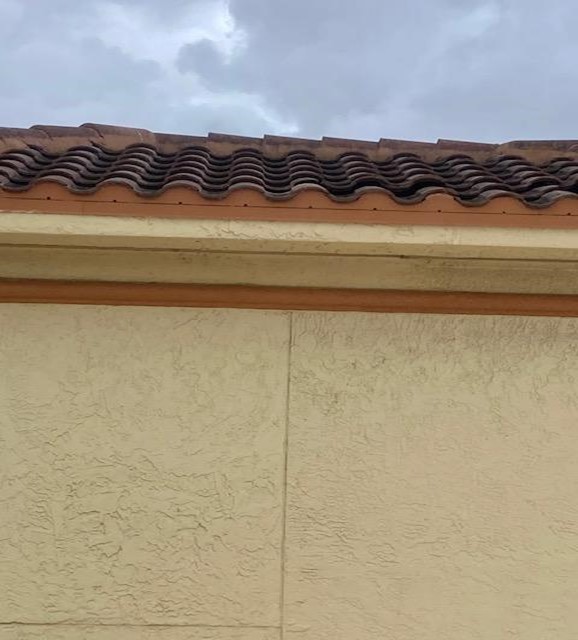Note: This guest post is by Steven Thomas. As President and Owner of Roof Leak Detection Company, Inc., Steven Thomas has evaluated over 20,000 roofing systems on commercial, industrial, and residential properties, and has been qualified in court as an expert regarding roof testing and evaluations. His company is an approved Testing Laboratory and has held this certification since 1994.
Why? The obvious reason is many homeowners and maintenance personnel do not know what to look for. That’s not a knock on them—roof damage can be very obvious or subtle.
Yesterday in your blog post, Hurricane Roof Damage? How Does a Policyholder Know?, you showed a picture of damage that cannot be seen from the ground, ariel imagery, or a drone. Your photo showed a point load fracture which is a clear sign of wind damage. What is a point load fracture? In a high wind event, mechanically attached tiles with screws or nails can flutter in the wind. During this upward and downward movement, the tile is placing pressure at the point of fastening. Two things can occur.
- The tile can loosen the fastener, thus elongating the hole in which the fastener is secured to the decking and cause the loosening of the fastener. This can also result in moisture ingress into the structure through this opening.
- The tile can fracture at the point of fastening. Point load fracturing is caused by movement of the tile during a high wind event. Not foot traffic (unless you’re wearing high heels on the roof) or thermal expansion and contraction! This damage is often missed by many not familiar with wind damage.
Many are of the belief that when a tile lifts, it will fly off the roof, but see the photos below taken five days after a hurricane hit. The tiles are stuck in an uplifted position! Furthermore, many purported experts believe that when tiles or tile fragments are loose, they will fly off the roof—again, see the photos below to discard this myth.
Just because a roof is not leaking does not mean it is not damaged. Unfortunately, many hold this view and do not have a trained roof expert inspect the property after a storm event. Water stains may show up six months or even years after the storm event because the holes created are small and impede moisture ingress at the moment. However, the water can and will eventually migrate into the structure.
If your home, business, or condominium went through Hurricane Ian, I strongly advise that you have your roof inspected by a qualified, trained professional.







